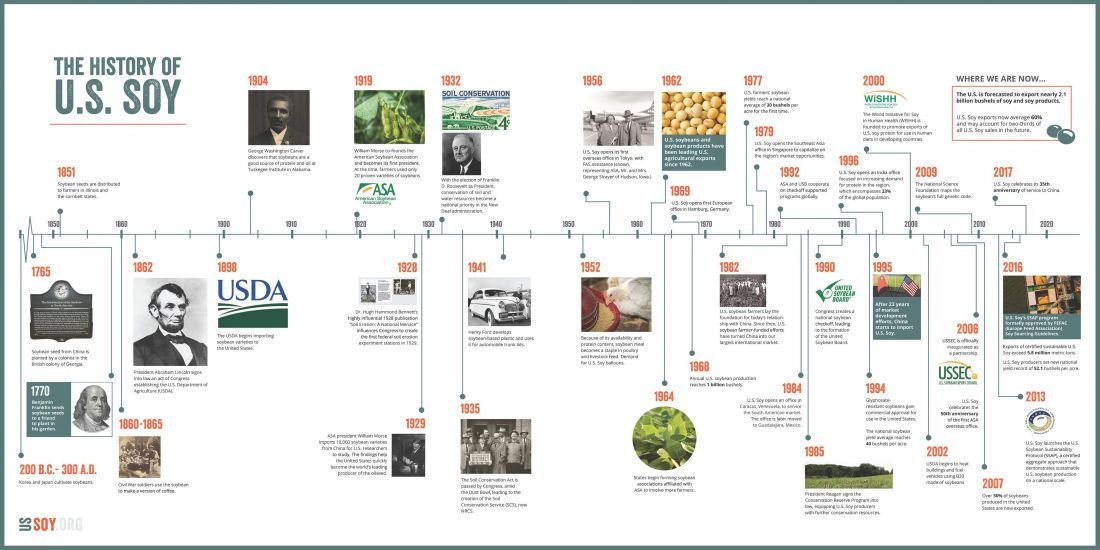Production & Composition of a soybean
Soybeans are a major crop in Nebraska and are grown primarily in the eastern, southern, and central parts of the state. Nebraska is one of the top soybean-producing states in the United States and is known for its high-yielding soybean varieties. The state is also a leading producer of soybean meal and oil, which are used in a wide range of food and industrial products. Nebraska's soybean industry is supported by a strong infrastructure, including a network of elevators and processing plants, as well as good transportation links to markets both within the U.S. and internationally.
Soybeans, related to peas, clover, and alfalfa, are dicots with two cotyledons. Each plant yields 60 to 80 pods containing three pea-sized beans. Well-suited to various soils, soybeans have a slower growth rate, taking 3 to 5 months for maturity. Cotyledons store food for the developing embryo and emerge first from the soil.
Initially, soybeans develop a taproot and later form a fibrous root system with nodules hosting nitrogen-fixing bacteria. Flower development classifies soybeans as determinate or indeterminate. Indeterminate varieties continue growing after flowering, while determinate ones complete their growth before flowering.
Soybean flowers are small (1/4 inch), white, pink, or purple, resembling pea or clover flowers. Only 50 to 80% of flowers produce pods. Harvesting occurs when seeds turn yellow and dry to 13-14% moisture. Soybeans can also be harvested for edamame, a green vegetable when pods are fully grown but not yellow.
A soybean is primarily composed of protein, oil and carbohydrates. The protein content of soybeans ranges from 35-57%, with the remainder of the bean made up of carbohydrates (about 20-30%) and oil (about 18-24%). The protein in soybeans is considered to be a high-quality protein, as it contains all of the essential amino acids that the human body needs. The oil content of soybeans is primarily composed of polyunsaturated and monounsaturated fats, which are considered to be healthy fats. The carbohydrate content of soybeans is mostly made up of complex carbohydrates, such as sugars and starches. Additionally, soybeans are a good source of dietary fiber, vitamins and minerals, such as potassium, calcium, and magnesium.
NEBRASKA Fast Facts
• Nebraska ranks 4th in soybean production in the United States with 350 million bushels produced in 2021.*
• Livestock and poultry in Nebraska used the meal from more than 28 million bushels of Nebraska soybeans.
• A 60-pound bushel of soybeans yields about 48 pounds of protein rich meal and 11 pounds of oil.
• 1 bushel of soybeans can make 1.5 gallons of biodiesel.




